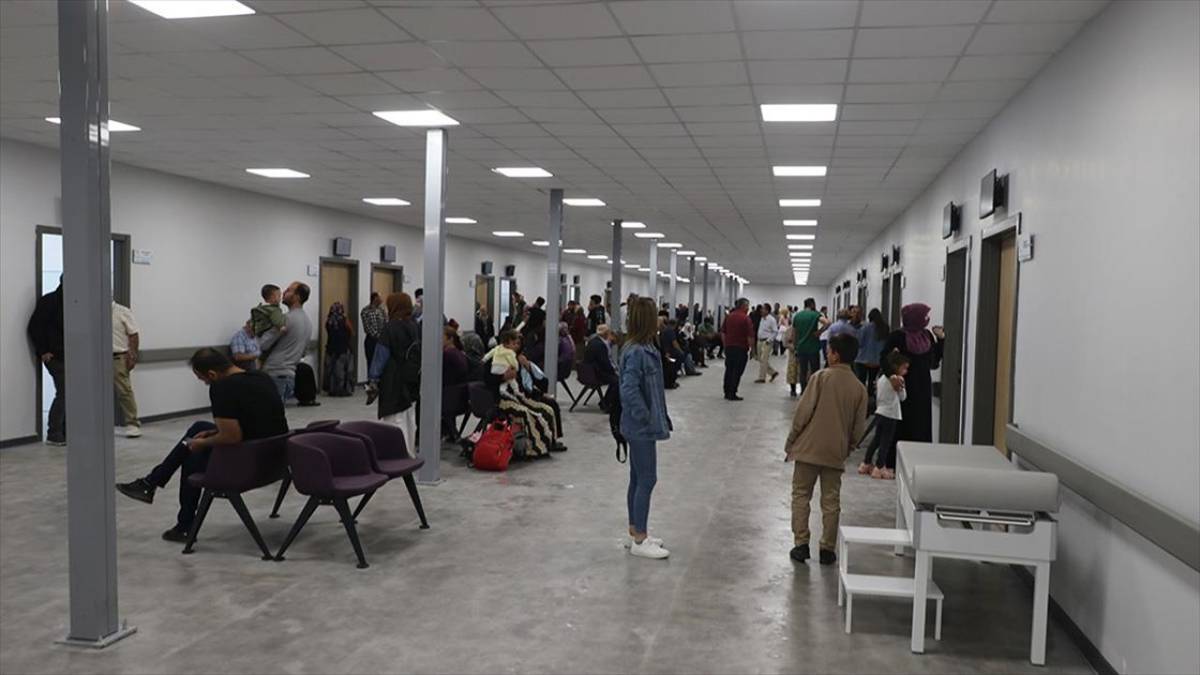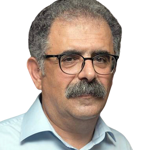Turkey's social security system, private hospitals and the function of the World Bank


The World Bank (WB) has been one of the most important institutions, along with the International Monetary Fund (IMF), that has assumed the role of the ideological and political flagship of neoliberal globalization carried out under the hegemony of the USA.
Since the beginning of the 1980s, an “information agency” function has been added to its activities as a specialized agency of the United Nations on financial matters since Nov 15, 1947.
With two studies titled “Financing Health Services in Developing Countries: An Agenda for Reform“ and '”Poverty-World Development Report," it took the first steps towards realizing this function.
The first of these studies explained what and how countries within the capitalist system should transform their social security institutions and health systems.
In the second, both the definition of poverty and the classification of poverty were made in a mind-boggling manner.
In addition, information was shared not on how to eradicate poverty, but on how to integrate the poor into the system and transform their assets from a burden for the system into a benefit.
Neoliberal globalization
The recommendations of these two studies, which can be considered among the first studies that form the basis of capitalism's neoliberal policies, have been implemented almost completely by all countries participating in the system.
Such a common beginning is at the root of the similarity and even uniformity of the problems defined in many countries in the fields of health and social security today. During this period, universities were included in the process as much as the governments of the countries.
In the nineties, we witnessed that many academic studies, especially in the field of poverty, were seen and published in all countries almost like a pandemic. The “determining" role of the WB in academic studies can be considered as an important indicator that neoliberal globalization is not only based on economic policies, but also aims to change and transform the “values”, “people” and the “way of life” of neoliberal globalization as a whole.
Neoliberal capitalism and health care
In this context, similar developments took place in Turkey and important steps were taken to implement the program. However, even though the WB-patented “reform” activities in the fields of social security and health were implemented in the 1980s and 90s by the governments of the time under the guarantee of the September 12 military coup, they failed to achieve success.
Considering these developments, it is not difficult to guess the reason for the interest of the WB and thus transnational capital in the 2002 elections.
In fact, the government that came to power made great efforts to implement neoliberal economic policies in all areas as soon as possible.
Health services were organized as a new area of capital accumulation. Like sectors such as automotive, energy, electronics, etc., health services and especially the hospital sector have been made suitable for the profit maximization of the bosses. Thus, on the one hand, health services were made a means of transferring public resources to the bosses through the private health sector-hospitals, while on the other hand, everyone paid for them.
The function of the SGK
Even the WB's warning that “there are inequalities between your social security institutions” was followed by the AKP. The Social Security Institution ( SGK) was established with the Law No. 5502 enacted by the 2nd AKP Government headed by Recep T. Erdoğan, and with the Law No. 5510, the structure and function of the social security system, especially its financing model, was brought into the form demanded by the WB.
In fact, this activity was recognized by the WB as an example to the world with the award given to the SGK in October 2010. In addition to covering the health expenditures of the insured, the SGK was turned into an institution that regulates the “health market."
Since then, the Health Ministry has not been involved in the financing of health services. Because with these regulations, the amount of the health insurance premium, which was started to be collected by the public almost like a tax, the price of all kinds of medical activities, the prescription money to be deducted from the salary- pay of the insured in each application to the hospital and family doctor, the contribution, the difference in equivalent medication, etc. was determined and collected by the SGK from beginning in those days.
The prices determined by the SGK at least once a year "taking inflation into account" are put into practice through the updated Health Implementation Directive (SUT).
The SGK also determines from whom, how much, and at what price it will purchase healthcare services using the funds it collects.
The law gives private hospitals the right to charge the insured up to 2 times (200 percent) of the total amount determined and paid by the SGK, and up to 3 times (300 percent) for exceptional health services, in addition to the payment to be made by the SGK.
Accordingly, for example, while a private hospital receives 1000 liras from the SGK for an exceptional health service in accordance with the SUT, it can demand 3000 liras from the same patient for the same procedure.
Thus, the health service offered by public hospitals and public university hospitals for 1000 liras is offered by private hospitals (including foundation university hospitals) for four times the price, to be paid directly out-of-pocket by the insured who use the health service, despite the fact that approximately 75 percent of them pay health insurance premiums.
And why? Are the medical services provided in private hospitals of higher quality than university-medical faculty and state hospitals? No, of course not. Apart from some differences in terms of hotel services and less queuing, there is no scientifically proven difference.
The main reason is that the health system proposed by the WB was implemented by the AKP under the name of the Health Transformation Program and the wheels of the Health Transformation Program are turning for the private sector. Despite the public's right to health, AKP governments continue to do their duty to the WB, while private hospitals fill their pockets under the name of additional fees etc.
Private hospitals
In the AKP years, when health service provision in Turkey began to be defined as a new area of accumulation for capital owners, private hospitals became widespread across the country. Their number increased from 271 in 2002 to 565 in 2023 and spread to all provinces.
According to the latest data published by the Health Ministry, 36.1% of hospitals, 20.7% of hospital beds, 35.4% of intensive care beds and 51.7 percent of neonatal intensive care beds belong to the private sector.
By SGK
The public is directed by the government to receive services from private hospitals. As the public health financing institution, the SGK prefers private hospitals for the purchase of curative health services.
Not only that, it pays private hospitals several times more than public hospitals for each hospital admission. It is noteworthy that while 10.0% of hospital admissions in Turkey in 2024 were to private hospitals, 15.2% of the total payment made by the SGK to hospitals for the services it purchases was made to private hospitals.
In fact, in 2024, the SGK paid an average of 333.30 liras to public hospitals for each patient visit, while in the same year it paid an average of 933.99 liras to private hospitals for each patient visit.
In other words, by preferring to buy the same service from the private sector, the SGK chose to pay private hospital bosses 2.8 times (280 percent) more than the public sector for each patient admission in 2024. And this stance is not based on any scientific and/or medical justification.
As can be seen in all its nakedness, this is a purely political choice. The AKP continues to follow WB instructions at all costs. Under AKP governments, both prime ministers/presidents and health ministers prefer the bosses.
Citizens continue to be charged a “health tax” under the name of health insurance premiums, while everyone, including those who pay the health tax, are forced to pay for almost all health services.
The SGK, which collects these payments, continues to transfer them to private hospital bosses. (OH/VK)







